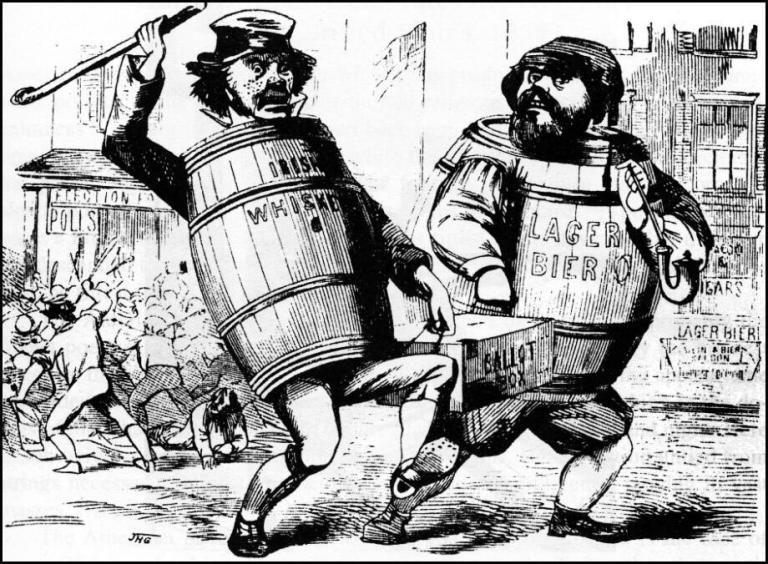|
“Unprecedented!” We hear the word almost daily, alongside a steady stream of precedents. The 1918 flu. Michael Brown’s murder in Ferguson. Protests in the 1960s. Polio vaccine development. Charlottesville’s Unite the Right. The disputed 2000 presidential election. And week after week, the Know-Nothings of the 1850s.
Conspiracy theories heightened the Know-Nothings’ zeal to protect the American way of life (native-born, English-speaking, Protestant) from Irish and German Catholic immigrants. Their nickname referred to members’ secrecy: “I know nothing.” They resented outsiders, elites, and expertise. To defeat a supposed plot to bring the U.S. under papal rule, they won local elections and used intimidation to keep Catholics from voting. Violence by Know-Nothings erupted in at least seven major cities between 1854 and 1858. In Louisville’s election day riots of 1855, attacks on immigrant Catholic neighborhoods by Protestant mobs left 22 dead. Dozens were injured. Fire destroyed homes and businesses. Of the five participants later indicted, none were convicted. From hyper-nationalism to conspiracy theories to deadly violence—what next? The Know-Nothings quickly passed into history with the rise of the new Republican Party. Within a few years of their demise, the nation was engulfed by civil war.
4 Comments
Pat Groenewold
2/15/2021 08:31:32 am
Perhaps it is true that there is nothing new under the sun....This reminder of the past both gives me hope and depresses me. It seems that we have learned nothing from the past and therefore are doomed to keep making the same mistakes.
Reply
2/15/2021 08:58:42 am
Drawing lessons from the past is iffy stuff. One could learn from the Know-Nothings that these violent outbursts flare for a few years and then fizzle away. Or one could see them as foreshadowing the entire nation falling apart.
Reply
Michael J McQuestion
2/15/2021 03:03:54 pm
As depicted in Gangs of New York
Reply
2/16/2021 07:56:19 am
I didn't see it. Should I? From the descriptions, yes, part of the same story. And the nativist gangs are still with us, although (being white) rarely labeled "gangs."
Reply
Leave a Reply. |
AuthorI'm a historian who writes novels and literary nonfiction. My home base is Madison, Wisconsin. Archives
July 2024
|

 RSS Feed
RSS Feed